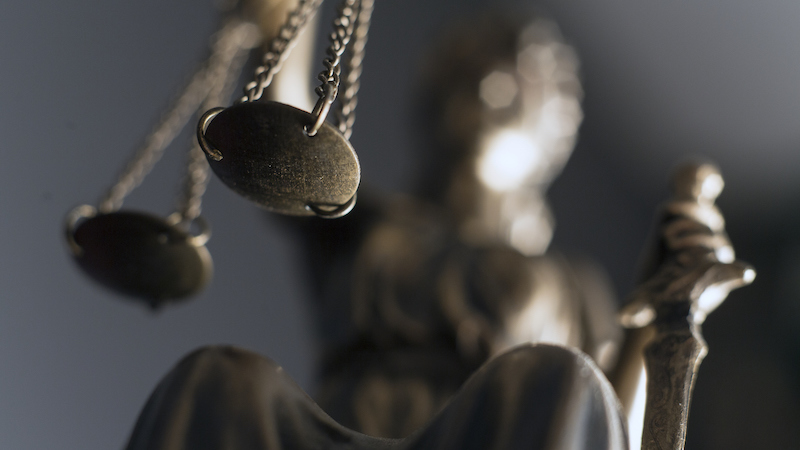
Leading scholars and practitioners comment on a recent book that argues for a simpler, more streamlined legal system.
The American legal system is broken—or so claim Professor Benjamin H. Barton and Judge Stephanos Bibas in their recent book, Rebooting Justice: More Technology, Fewer Lawyers, and the Future of Law.
Barton and Bibas argue that criminal defense attorneys across the country too often shoulder the burden of meager salaries and overwhelming caseloads. Defendants who navigate the criminal justice system face barriers to access to justice and representation at every turn. And this undesirable state of affairs persists in spite of the requirement set forth by the U.S. Supreme Court in Gideon v. Wainwright to provide a free lawyer to a felony defendant who cannot afford to hire one.
The civil justice system fares no better, claim Barton and Bibas. Litigants frequently go to court without legal representation, which significantly decreases their chances of receiving adequate relief from courts. Moreover, most non-lawyers have difficulty understanding the complexities of civil courts, rendering these individuals vulnerable to being taken advantage of by large organizations and their lawyers.
Given these problems, the entire legal justice system requires revamping, urge Barton and Bibas. As they put it, “the legal system needs to go on a diet, to make it slimmer, faster, cheaper, and thus fairer.”
Against this backdrop, The Regulatory Review has invited leading scholars and practitioners to comment on the issues raised by Barton and Bibas’s new book and the solutions it offers. This series brings together the following contributors: Darryl K. Brown, a professor at the University of Virginia Law School; Cary Coglianese, a professor at the University of Pennsylvania Law School; Judge Fern A. Fisher, a visiting associate professor at the Maurice A. Deane School of Law at Hofstra University; D. James Greiner, a professor at Harvard Law School; Erica Hashimoto, a professor at Georgetown University Law Center; Paul Heaton, a senior fellow at and the academic director of the University of Pennsylvania Law School’s Quattrone Center for the Fair Administration of Justice; John Hollway, associate dean and executive director of the Quattrone Center for the Fair Administration of Justice at the University of Pennsylvania Law School; and Catherine T. Struve, a professor at the University of Pennsylvania Law School.
Simpler Justice
November 26, 2018 | Benjamin H. Barton, University of Tennessee College of Law, and Stephanos Bibas, U.S. Court of Appeals for the Third Circuit
Access to justice matters, all the more so in a country founded on the rule of law. But lawyers and procedures are means to justice, not ends in themselves. Courts have repeatedly created new rights to lawyers, but legislatures have repeatedly failed to fund them. Simplifying this system would be more democratic and would empower ordinary citizens.
The Legal System and Its Reform
November 27, 2018 | Cary Coglianese, University of Pennsylvania Law School
The U.S. legal system leaves far too large a proportion of society without adequate fairness in both process and outcomes. If there is to be any hope of improving the quality of justice for all individuals, then the nation needs to engage in the kind of thorough, clear-eyed assessment of both problems and solutions that is exemplified so well by Rebooting Justice.
A Simpler and Less Adversarial System Would Be More Just
November 28, 2018 | Fern A. Fisher, Maurice A. Deane School of Law at Hofstra University
Lawyers and the public must embrace the fact that the adversarial system does not work for the millions of individuals who must navigate the justice system without lawyers. But I am not willing to accept reforms that increase access to tools that can resolve legal problems but which do not also assure adherence to the law and the achievement of fair outcomes.
Rebooting Justice for Inmate Litigants
November 29, 2018 | Catherine T. Struve, University of Pennsylvania Law School
Inmate litigation represents a subset—but a large and important one—of the problems that Barton and Bibas seek to address. They indict our legal system, but they also point out tools for its rehabilitation. It is in correctional institutions, as in society at large, that rehabilitation holds the possibility of positive change.
Preventing Error Requires Not Just More Resources, But Better Incentives Too
December 3, 2018 | Paul Heaton and John Hollway, Quattrone Center at the University of Pennsylvania Law School
Preventing error is not just a matter of insufficient defense resources, but also a matter of creating incentives for the right actors to direct existing resources towards harm reduction. Prosecutors need to be encouraged to focus resources and attention on preventing error.
Reforming Criminal Justice by Reforming Lawyers
December 4, 2018 | Darryl K. Brown, University of Virginia Law School
Barton and Bibas reframe the paucity of available legal assistance as a problem of regulation rather than funding. Instead of lobbying legislatures to fund unpopular programs, the challenge is lawyers’ vested interests in preventing reforms that would open them to competition. The hurdles posed by this regulatory problem might be easier to overcome than funding shortfalls.
Misdemeanor Cases Need Lawyers Too
December 5, 2018 | Erica Hashimoto, Georgetown University Law Center
Given the way the criminal justice system operates to process misdemeanor cases, modest savings from fewer appointments of lawyers in misdemeanor cases will not improve the quality of representation in most felony cases. And narrowing the right to counsel may have the unintended consequence of increasing the glut of misdemeanor cases prosecuted.
Evaluating the Grand Bargain
December 6, 2018 | D. James Greiner, Harvard Law School
Barton and Bibas take a holistic look at the role of traditional attorney representation on both sides of the house and their proposal takes the form of a “grand bargain.” With an understanding that their grand bargain is a triage problem, questions emerge.



